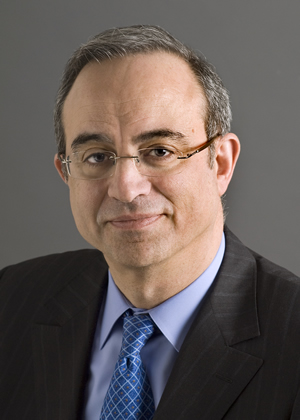
The biggest lesson of the Arab Spring? That “nations must develop national identities that trump factions,” according to Marwan Muasher, Vice President for Studies, Carnegie Endowment for International Peace, and Former Foreign Minister of Jordan.
Muasher, who was the first Jordanian ambassador to Israel after the 1994 agreement, spoke on the “second awakening” of the Arab World on October 9 at Luce Hall. His lecture, sponsored by the Coca-Cola World Fund at Yale, touched on the issue of Islamists in power and how a better sense of tolerance could be instilled in Arab culture.
“If you use the lens of the past three years, there is not much to be enthusiastic about,” Muasher said, addressing the question of whether the Arab uprisings should be called a “spring” or a “winter” instead. “But we often forget that democratic transformations take a long time. Just look at Germany, Spain, and Portugal in the 1900s.”
Muasher observed that the Arab Spring has shown that Islamists are not necessarily a good alternative to the iron-fist regimes that preceded them. While the Arab world is overwhelmingly Muslim, he argued that Islamist parties could not simply ride on their pro-Islam message to stay in power.
“The ‘Islam is the solution’ slogan was good when these parties were outside powers,” he explained. “But now when they’re the inside power, actually running the government, this slogan is not good enough – it doesn’t solve people’s daily problems.”
While the current political reality fight seems to be between Islamists and secular forces instead of a drive toward pluralism, Muasher is confident that the Arab people have learned to stop exclusionist groups from dominating. “Just look at what’s happened in Egypt,” he said, referring to the downfall of both Hosni Mubarak, a secular leader, and Mohamed Morsi, leader of the Muslim Brotherhood.
But in a larger sense, he sees the Arab World as still suffering from a culture of intolerance. Such an attitude, he believes, hinders the development of a thriving democracy. Democracy, after all, requires a measure of acceptance for dissenting views and perspectives.
Toward the end of his talk, Muasher laid out four requirements for the road ahead: a developed checks and balances system, a merit economy that focuses on jobs and productivity, reforms to create a more inclusive political process, and smarter spending on education. These are things that each nation must develop by themselves through a homegrown process, according to Muasher.
So what is the United States’ role? “Not much. The U.S. must be realistic; it’ll be good for it to encourage the process without picking winners and losers. It’s learned before what happens when it picks the wrong people to side with,” Muasher said.
The lecture is jointly sponsored by the Whitney and Betty MacMillan Center for International and Area Studies, the Yale School of Management, and the Yale Law School.
